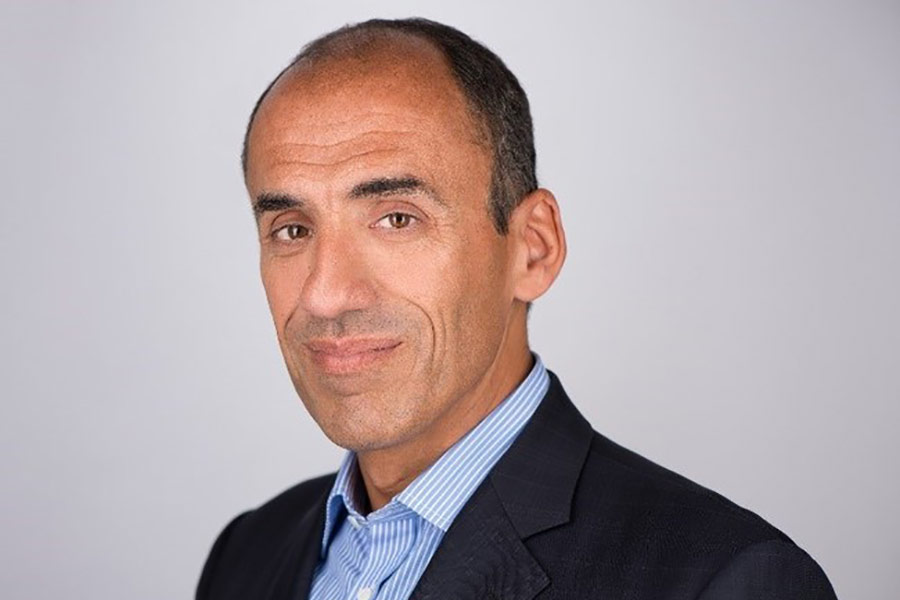
Tepper School Alumnus Elected to Prestigious National Academy of Engineering
Sebastian Ceria, chief executive officer of Qontigo and Tepper School Ph.D. alumnus (TPR 93), has been elected to the National Academy of Engineering (NAE), one of the highest professional distinctions an engineer can receive. Ceria has been recognized by the Academy “for application of optimization tools to advance integer programming and financial engineering.” He has worked extensively in robust optimization and its application to portfolio management, authoring many articles in industry and academic publications. Ceria is also a recipient of the Career Award for Operations Research from the National Science Foundation.
"I congratulate all of the Carnegie Mellon community members elected to the National Academy of Engineering on this well-deserved recognition of their leadership and contributions to engineering research and practice," said Farnam Jahanian, president of Carnegie Mellon. "Their impacts in their respective fields are invaluable, as are their associations with our university. Their membership in the NAE is yet another reminder that the CMU community is home to the world's brightest minds and most remarkable leaders."
Ceria earned his Ph.D. from the Tepper School in Operations Research in 1993. He studied optimization under Gérard Cornuéjols, the IBM University Professor of Operations Research, and the late Egon Balas, the Thomas Lord Professor of Operations Research and University Professor of Industrial Administration and Applied Mathematics, who are also both NAE fellows.
“This honor is further demonstration of the Tepper School’s incredible legacy in operations research and integer programming,” said Isabelle Bajeux-Besnainou, Dean of the Tepper School. “Now more than ever, the world relies on understanding complex data in order to solve some of the most pressing problems that our society faces.”
After his time at the Tepper School, Ceria joined the faculty of Columbia Business School as a professor of Decision, Risk, and Operations. Ceria left Columbia in 1998 to launch his own company, Axioma. Using principles of optimization, Ceria’s new venture offered mathematically based models to help financial professionals make better decisions.
Currently, Ceria serves as CEO of Qontigo. In 2019, Deutsche Börse Group (DBG) acquired Axioma and named Ceria CEO of Qontigo, a new global company with over 550 employees, combining the sophisticated risk analytics of Axioma with DBG’s STOXX and DAX indexing businesses.
“Sebastian is a gifted software engineer and mathematician,” said Cornuéjols, a Tepper School professor of operations research and Ceria’s Ph.D. advisor. “It has been exciting to follow his career from academia to successful entrepreneur in the finance sector and watch him take what he had studied and learned about optimization at the Tepper School and apply it so successfully to solve real-world problems.”
He will join three other NAE elected fellows from the Tepper School: Sridhar R. Tayur, the Ford Distinguished Research Chair and University Professor of Operations Management who joined the Academy in 2017; Gérard Cornuéjols, the IBM University Professor of Operations Research, who joined the fellows' group in 2016; and the late Egon Balas, Thomas Lord Professor of Operations Research and University Professor of Industrial Administration and Applied Mathematics, who was elected in 2006.
The National Academy of Engineering (NAE) has elected 106 new members and 23 international members, announced NAE President John L. Anderson today. This brings the total U.S. membership to 2,355 and the number of international members to 298. With Ceria’s election, Carnegie Mellon has been home to more than 60 NAE members.
Founded in 1964, the U.S. National Academy of Engineering is a private, independent, nonprofit institution that provides engineering leadership in service to the nation. Its mission is to advance the well-being of the nation by promoting a vibrant engineering profession and by marshalling the expertise and insights of eminent engineers to provide independent advice to the federal government on matters involving engineering and technology.
